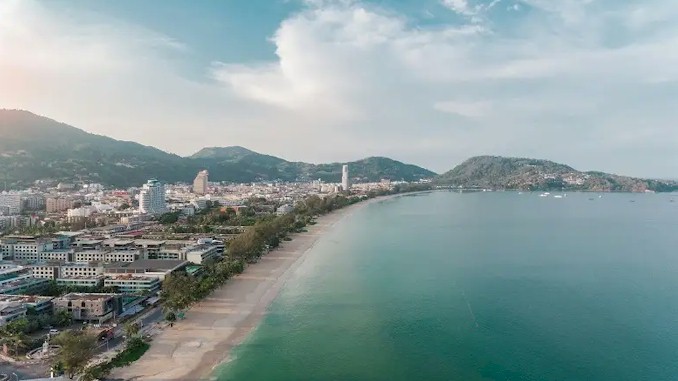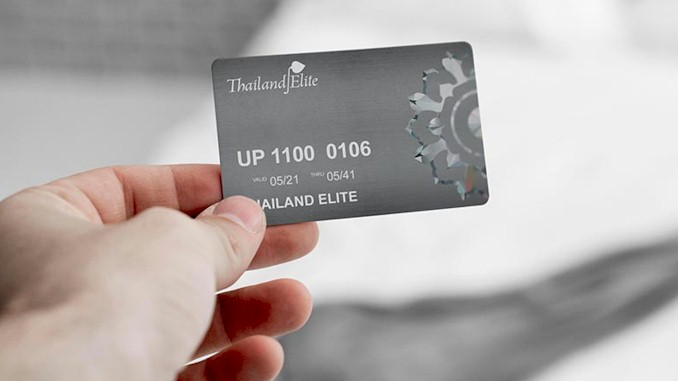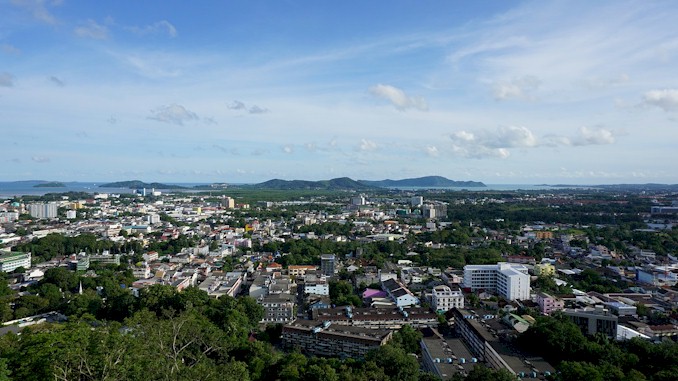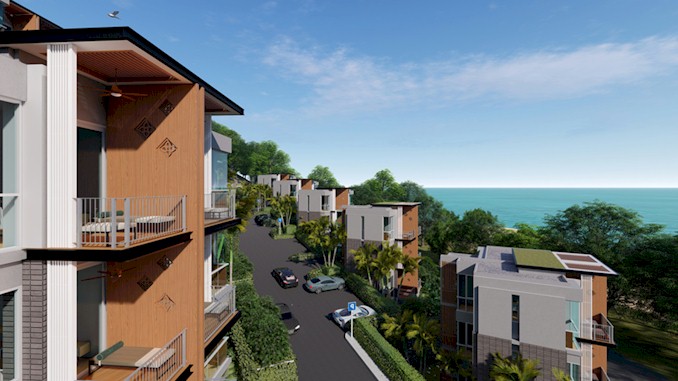Evertything you should know about DTV(Destination Thailand Visa)
You know that feeling when you finally snag that perfect co-working spot by the beach, but your tourist visa’s about to expire? Been there, done that, my friend. Don’t worry, though, because there’s a game-changer for remote workers like us: the DTV, or Destination Thailand Visa. It’s kinda like a golden ticket to paradise, letting you stay in the Land of Smiles for extended periods and ditch the visa-renewal scramble. Now, I spent a good chunk of time sifting through legalese to understand the ins and outs of this visa, and let me tell you, the info out there can be confusing. But hey, that’s why I’m here – to break it down for you, adventurer, and make sure you snag your own DTV with ease. So, grab a metaphorical cup of strong Thai coffee, ’cause we’re about to dive deep into everything DTV!
The Destination Thailand Visa (DTV) caters to digital nomads and remote workers, providing a 5-year multiple-entry visa allowing stays of up to 180 days per visit. It also extends to the spouses and dependent children of DTV holders.
Now, look, I know immigration stuff can get dry faster than a flip-flop in the Bangkok sun. But trust me, this ain’t your grandpa’s visa guide. We’re gonna unpack the DTV in a way that’s clear, actionable, and, dare I say, entertaining. So, buckle up, because next, we’re spilling the tea on exactly who qualifies for this visa, the documents you’ll need to gather, and any sneaky fees you might encounter. Spoiler alert: there won’t be any surprises, just a smooth path to your Thai escape. Stay tuned!
What Exactly Is the Destination Thailand Visa?
Let me break it down for you, no fluff, just straight facts. The Destination Thailand Visa, or DTV, is Thailand’s latest move in the global talent game, and it’s a total game-changer. Launched in July 2024, it’s Thailand’s way of rolling out the red carpet for digital nomads, remote workers, and even culture enthusiasts. It’s kinda like Thailand saying, “Hey, we see you hustling online, and we want you to do it from our beaches.”
At its essence, the DTV is a 5-year multiple-entry visa allowing stays in Thailand for up to 180 days at a time, extendable for another 180 days. That totals a year of enjoying pad thai and coconuts. However, there’s a small catch—you’ll need to do a border run, exiting Thailand and re-entering through a neighboring country of your choice.
But here’s the real kicker – it’s not just about work. If you’re into Muay Thai, Thai cooking, or even just vibing at music festivals, you might qualify. And for 10,000 THB, it’s practically giving you the keys to the Kingdom.
Now, you might be wondering, “Why is Thailand doing this?” Simple. It’s about bringing in fresh talent, new ideas, and let’s be real, a nice injection of foreign currency into the economy. The Thai government isn’t playing small ball here – they’re aiming to transform Thailand into a hub for global talent and innovation. And from what I’ve seen helping clients navigate this new visa, it’s working. People who used to country-hop every few months are now setting up shop long-term, bringing their skills, their businesses, and their spending power with them.
Trust me, after years of helping people jump through hoops to stay in Thailand, this visa is a breath of fresh air. It’s streamlined, it’s flexible, and it’s designed for the modern global citizen. Whether you’re coding the next big app, writing a novel, or just looking to immerse yourself in Thai culture, the DTV is your ticket to doing it without the constant visa stress. So, ready to make Thailand your home base? Let’s dive into the details and get you on your way to living that Thai life.
Who’s Eligible for the DTV?
Alright, let’s dive into who can actually snag this golden ticket. The DTV isn’t a one-size-fits-all deal, but it’s pretty darn inclusive. Here’s the breakdown:
Digital Nomads and Remote Workers
Picture this: You’re a software developer from New York, cranking out code from a beachside café in Koh Samui. Or maybe you’re a graphic designer from London, creating masterpieces with a view of Chiang Mai’s mountains. That’s exactly who this visa is for. If you can work from anywhere with a laptop and a decent Wi-Fi connection, you’re in.
Freelancers
Freelance writers, photographers, consultants – listen up. This visa has your name written all over it. I recently helped a freelance copywriter from Australia get her DTV. She was tired of visa runs every few months and now she’s set for five years. Talk about a game-changer for her business.
Cultural Enthusiasts
Here’s where it gets interesting. The DTV isn’t just for work. Check out this list of activities that could qualify you:
- Muay Thai courses
- Thai cooking classes
- Sport training
- Medical treatment
- Seminars
- Music festivals
I had a client, let’s call him Mike, who was obsessed with Muay Thai. He used to come on tourist visas for short training stints. Now, with the DTV, he’s here for the long haul, training like a pro.
Family Members
Got a spouse or kids under 20? Bring ’em along! The DTV extends to immediate family members. I’ve seen families turn their Thai adventure into a long-term lifestyle.
Here’s a quick eligibility checklist, it actully grap from application of DTV on the thaievisa.th.go:
- Biodata page of Passport or Travel Document
- Photograph taken within the last six months
- Financial evidence: amount of no less than 500,000 THB, e.g. bank statements, sponsorship letter
- Employment contract or employment certificate in their country or professional portfolio showcasing digital nomad, remote worker, foreign talent or freelancer status.
Now, let’s talk numbers. The Thai government isn’t messing around with this visa. They’re aiming big. In a recent press conference, a spokesperson for the Immigration Bureau stated, “We expect to see a 30% increase in long-term visitors within the first year of the DTV program.” That’s huge.
Remember, eligibility is just the first step. You’ve got to back it up with the right documents. But don’t sweat it – if you’re reading this and thinking, “That sounds like me,” chances are you’re on the right track. And hey, if you’re not sure, that’s what folks like me are here for. We’ll get you sorted.
The DTV Application Process: A Step-by-Step Guide
Alright, let’s break down the DTV application process into bite-sized chunks. Trust me, it’s not as daunting as it might seem at first glance. I’ve guided dozens of clients through this, and with the right prep, it’s smooth sailing.
Step 1: Gather Your Documents
First things first, you’ll need:
- Valid passport (duh, right?)
- Recent passport-style photo
- Proof of funds (bank statements showing at least 500,000 THB)
- Employment contract or freelance portfolio
Step 2: Go straight to thaievisa.th.go
The only way you get DTV is apply online via thaievisa.th.go.
Step 3: Fill Out the Application
There, you have to choose the matched Thailand console to the location where you live. As you have seen above, it’s simply.
Whether online or on paper, take your time with this. Double-check everything. I once had a client, let’s call him Tom, who rushed through this part. One wrong date, and boom – application rejected. Don’t be like Tom.
Step 4: Pay the Fee
After uploading all required documents, you will proceed to the payment step for the visa fee. Please note that the visa fee is non-refundable. This means if your DTV application is not approved by the consulate, you will lose 10,000 THB! That would be a big ouch.
Step 5: Submit and Wait
After submission, it’s nail-biting time. But here’s the good news – processing times are usually pretty quick. I have seen some guys on Facebook said that they got the DTV a few hours after submit.
Step 6: Collect Your Visa
If approved (fingers crossed), you’ll get your visa via the email, it’s usually in PDF format.
Here’s a quick timeline to give you an idea:
| Stage | Time |
|---|---|
| Document Preparation | 1 hour |
| Application Submission | 1 second |
| Processing Time | 3-5 business days |
| Visa Collection | 1 day |
Total time from start to finish? About a few hours, give or take.
Remember, the key to a smooth application is preparation. I always tell my clients, “It’s better to over-prepare than under-deliver.” Have all your ducks in a row before you hit that submit button.
And hey, if you hit any snags, don’t panic. The Thai immigration system can be a maze, but that’s why folks like me exist. We’re here to guide you through the labyrinth.







